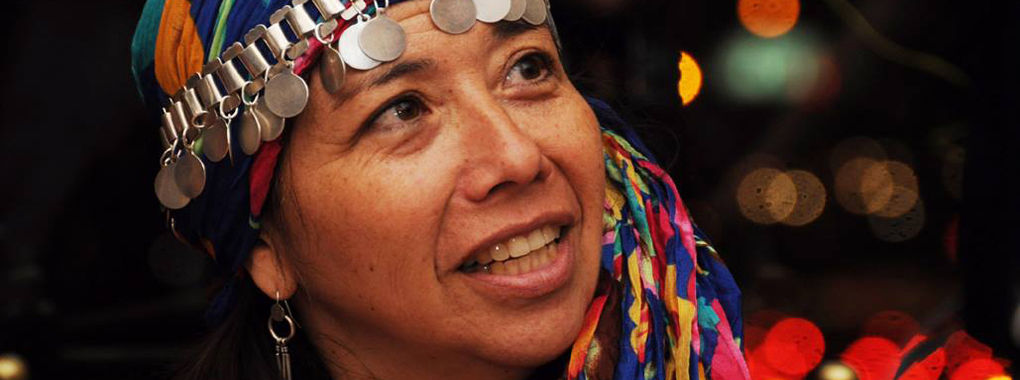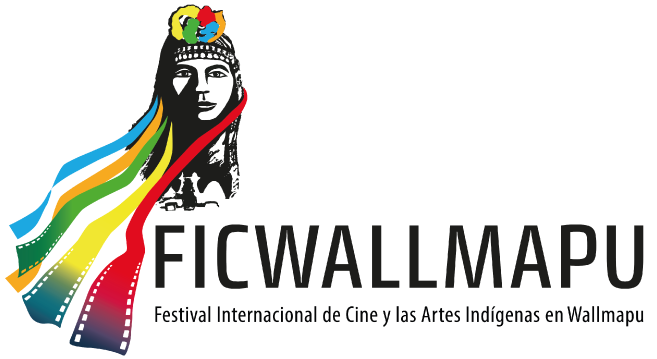
Jeannette Paillán: the spirit of Ficwallmapu
FICWALLMAPU born from the International Festivals of Indigenous Peoples Film and Video organized by the Latin American Coordinator of Film and Communication of Indigenous Peoples , CLACPI. It captures the spirit of understanding communication and cinema as tools that allow Indigenous Peoples to make their realities visible, express their views, and also work as a formula for promoting dialogue and communication with other indigenous peoples and non-indigenous society alike .
Festivals thus become a strategy of partnership , coordination and synergy that seek to strengthen and promote processes in those places and countries where there is no indigenous self-production or where indigenous reality is invisiblilized.
FICWALLMAPU emerged as the first international festival that breaks the boundaries of nation-states and disrupts the logic of focusing events on a metropolitan capital for an urban public.
To walk the talk
The festival aims to perform these words and carry indigenous voices, touring indigenous cinema productions to locations not usually reached by these productions; such as the Mapuche lof (traditional territorial units), communities and small rural areas, cultural organizations and shantytown or informal settlements.
FICWALLMAPU has the desire to show our indigenous struggle, our protests, but also our proposals, and has a spirit of expression and dissemination. It seeks to provide a space in which we share our identity, our culture and issues in open spaces beyond the dominant discourses prevailing in the mass media. A spirit of encounter and dialogue reflected in spaces for reflection, debate and exchange, which are not restricted to Mapuche or indigenous peoples, but aspire to be a meeting for dialogue in all sectors, particularly those who have no voice or autonomous spaces on television and mass media.
The projection and work with schools and children has been one of the most comforting at this early stage of film showings things developed during 2016. We understand that openness to new issues is natural and enthusiastic when thinking about how to use video as a way to explore self-representation and leave behind the image of violence and vilification in which we see in mass media like TV.
Partnerships
Cinema practices such as festivals are not a new field, its been just over 30 years that we are developing these spaces and screening films. In Chile since 2004 there have been film festivals and showcases, and in 2015, FICWALLMAPU is installed in a context where film, the Mapuche and indigenous presence are not only in constant tension, but are completely unknown at the national level. Indigenous peoples are an enigma to the majority of Chileans. It is from this perspective that the work of partnership and coordination with other processes and events become a strategic priority.
I think it is important to furthre note further that this work or the spirit of partnership and of making this process a more collective and community process, also captures the spirit of Indigenous Peoples, the spirit of minga that makes collaborations and alliances between similar processes a way of learning and strengthening our goals, expanding the voices and the views of indigenous peoples.
And what better way than making the invisible visible. Invisible because they have long been Indigenous Peoples in the world, and in the audiovisual world too. Therefore, we want to take the cameras and be present on the screens. We want to continue betting on an indigenous film to serve as a tool for Indigenous Peoples in their struggle for recognition of our rights. An Indigenous film to help strengthen communication processes, to give visibility to the struggle and proposals of the Mapuche people and the peoples of the continent helping to ensure our right to our own communication and identity.
In short, with pride and joy, we are pleased to continue working with those among you, are encouraged to participate with us to realize this dream: to turn FICWALLMAPU into a festival in which, through film, we can hear and make visible the voices and images of the Mapuche people and the Indigenous Peoples of Abya Yala (Latin America) and the world. And, of course, make FICWALLMAPU an international festival of reference contributing to making present in the world our Mapuche people and our territory, the ancestral Wallmapu.
Jeannette Paillan
Translated by Amalia Cordova.




 Temuco, Wallmapu, Chile.
Temuco, Wallmapu, Chile.